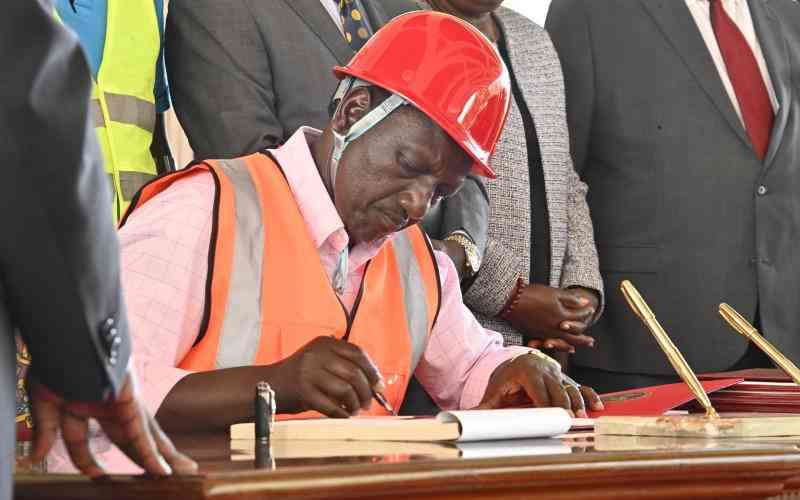×
The Standard e-Paper
Home To Bold Columnists

President William Ruto's desire to provide affordable housing for majority of Kenyans regardless of their social and economical status, was ultimately given the nod yesterday.
The development closed the debate on one of the most contested pieces of legislation in recent times. But even as he affixed his signature and seal to the law that will inject Sh63 billion in form of taxes into the 2023-2024 financial year, Ruto acknowledged the opposition he had faced.